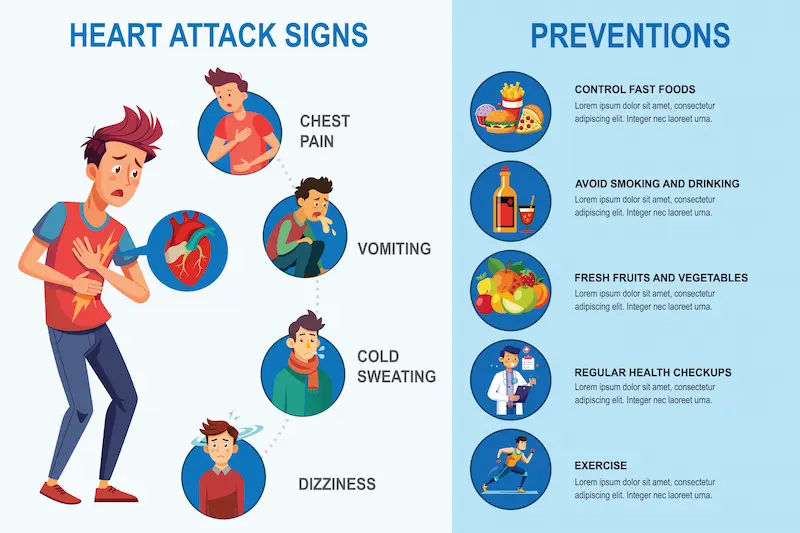Navigating Teenage Rebellion with Confidence
Learn effective ways to understand and manage teenage rebellion, strengthen communication, and guide your teen through challenging years with confidence.


Introduction
The slammed door. The eye-roll. The phrase, "You just don't get it!" If these scenes are becoming familiar in your home, you are likely navigating the tumultuous waters of teenage rebellion. It's a phase that can leave even the most confident parents feeling exhausted and worried. But what if we told you that this rebellion isn't a sign of failure, but rather a necessary and healthy part of growing up? This guide to teenage rebellion is designed to shift your perspective from seeing a problem to be solved to understanding a process to be guided. We will explore the fascinating science behind why teenagers rebel, help you distinguish between typical boundary-pushing and more concerning behaviours, and equip you with practical, empathetic strategies to strengthen your relationship with your teen during this critical time. Our goal is to transform this period of conflict into an opportunity for connection and growth, for both you and your teenager.
Why Do Teenagers Rebel? It’s Not Just to Be Difficult
Before we can effectively manage teenage rebellion, it's crucial to understand its roots. Contrary to popular belief, teens aren't rebelling simply to be difficult or defiant. Their behaviour is driven by powerful biological and psychological forces that are essential for their development into independent adults.
The Brain Under Construction: The Role of Prefrontal Cortex Development
A key player in adolescent rebellion is the brain itself. The prefrontal cortex, responsible for executive functions like impulse control, risk-assessment, and long-term planning, is the last part of the brain to fully mature, often not until the mid-20s. Meanwhile, the limbic system, which processes emotions and rewards, is in overdrive. This creates a neurological mismatch: your teen is driven by big emotions and a seek for thrilling rewards without the fully developed "brakes" to always make safe choices. This isn't an excuse for poor behaviour, but a scientific explanation for why they might act impulsively and challenge rules that seem logically sound to you.
The Quest for Identity: "Who Am I?" Becomes the Central Question
Erik Erikson, a prominent developmental psychologist, identified the primary task of adolescence as "Identity vs. Role Confusion." Teens are actively figuring out who they are outside of their family unit. This involves experimenting with different styles, beliefs, friendships, and opinions, often ones that differ from their parents'. This quest for identity is a positive and necessary step toward building a strong sense of self. When they question your values or adopt new ones, they are not necessarily rejecting you, but rather testing and forming their own worldview.
The Power of Peers: Seeking Acceptance Outside the Family
As children enter adolescence, their primary social focus shifts from parents to peers. This is a natural and healthy part of separating from the family. Acceptance from friends becomes paramount, and peer pressure can significantly influence behaviour, dress, and interests. This drive for social belonging can sometimes lead to concerning behaviour as teens strive to fit in, making it a critical area for open dialogue and guidance rather than strict prohibition.
Consult a Psychologist for the best advice
Healthy Rebellion vs. Concerning Behaviour: Knowing the Difference
Not all rebellion is created equal. Distinguishing between normal adolescent boundary-pushing and signs of deeper distress is a critical skill for parenting a defiant teen.
Signs of Typical Adolescent Boundary-Pushing
Healthy rebellion is about testing limits and asserting independence in relatively safe ways. Signs include:
• Debating rules and requests: Questioning "why" and negotiating curfews or privileges.
• Prioritising friends over family: Wanting to spend more time with peers and less on family activities.
• Experimenting with appearance: Changing hairstyles, clothing, or music tastes that may be different from your own.
• Seeking more privacy: Wanting their bedroom door closed and being less forthcoming about every detail of their day.
These behaviours, while frustrating, are a normal part of adolescent development.
Red Flags: When Rebellion May Signal a Deeper Problem
It's important to be vigilant for signs that go beyond typical rebellion and may indicate underlying issues like depression, anxiety, or substance abuse. Red flags include:
• Drastic changes in personality or friends: A complete withdrawal from family and long-time friends, or a sudden association with a new, concerning peer group.
• Extreme secrecy or lying: Especially about where they are going and who they are with.
• A significant drop in academic performance.
• Risky or self-destructive behaviour: Such as substance abuse, vandalism, or unsafe sexual activity.
• Signs of depression or anxiety: Persistent sadness, irritability, changes in sleep or appetite, loss of interest in activities they once enjoyed.
If you observe these signs of mental health struggles, it's crucial to seek professional support. If your teen’s behaviour has you consistently worried for their safety, consulting a child psychologist or adolescent counsellor is a vital step. Platforms like Apollo24|7 can connect you with qualified professionals for an initial online consultation to discuss your concerns.
Effective Strategies for Parents: From Conflict to Connection
Navigating this phase requires a shift in strategy from managing a child to guiding a young adult. Here are some effective communication strategies for teenagers that can reduce conflict and build trust.
Mastering the Art of Communication: Listening More Than You Lecture
The single most powerful tool you have is listening. Instead of reacting immediately to a provocative statement, try to listen with the goal of understanding. Use open-ended questions like, "Tell me more about that," instead of accusatory ones. Validate their feelings even if you don't agree with their perspective ("I can see why you're upset about that"). This doesn't mean endorsing bad behaviour, but it shows respect for their emotional experience and keeps the lines of communication open.
Setting Boundaries That Stick: Firm, Fair, and Flexible
Teens need and, despite appearances, want boundaries. The key is to focus on safety and core values. Be clear, calm, and consistent about non-negotiable rules (e.g., no substance use, attending school). For less critical issues, be willing to negotiate. Allowing your teen to have a say in their curfew or chores gives them a sense of autonomy and makes them more likely to comply. This approach to setting boundaries with teens is more collaborative and less authoritarian.
Choosing Your Battles: When to Hold Firm and When to Let Go
If you fight every battle, you’ll be exhausted and your teen will tune you out. Ask yourself: "Will this matter in a year? Is it a safety issue or a value issue?" Letting go of battles over hairstyles, messy rooms, or musical taste can free up energy to firmly address issues related to safety, respect, and responsibility. This is essential for dealing with a rebellious teenager without constant conflict.
What Your Teen Actually Needs (Even When They Push You Away)
Beneath the surface of anger and defiance, your teenager still needs you profoundly.
The Unshakeable Safety Net of Unconditional Love
Your teen needs to know that your love is not contingent on their achievements or compliance. They need to feel safe to fail, to make mistakes, and to come to you without fear of harsh judgment or "I told you so." Regularly express your love and pride in who they are, not just what they do.
Guidance, Not Control: Becoming a Consultant Instead of a Manager
Your role is evolving from a manager who directs every move to a consultant who offers advice and support. Instead of issuing commands, try posing questions that help them think through consequences. "What's your plan for getting your homework done if you go out tonight?" This fosters critical thinking and teenage independence, preparing them for the real world.
When to Seek Additional Support
Sometimes, despite your best efforts, professional help is needed. There is no shame in seeking support; it is a sign of strength and commitment to your child's well-being.
Recognising Signs of Mental Health Struggles
As mentioned in the red flags section, persistent changes in mood, behaviour, or functioning can be indicators. Trust your instincts. If you feel something is seriously wrong, it likely is.
The Role of Professional Help and How to Access It
A therapist or counsellor can provide your teen with a neutral space to work through their feelings and develop coping skills. They can also provide you with tailored strategies. If you are concerned about your teen's mental health, don't hesitate to reach out for help. You can book a confidential appointment with a mental health specialist through Apollo24|7 to get a professional assessment and guidance on the next steps.
Conclusion
Navigating teenage rebellion is one of parenting's greatest challenges, but it's also a profound opportunity. By understanding the developmental forces at play, differentiating between healthy and harmful behaviours, and adopting strategies of connection over control, you can guide your teen through these turbulent years. Remember, this phase is temporary. The arguments and door-slamming will subside, but the relationship you build now one based on mutual respect, open communication, and unwavering support will form the foundation for a strong, lifelong bond with the incredible adult they are becoming. Take a deep breath, trust your instincts, and know that by seeking to understand, you are already providing exactly what your teenager needs.
Consult a Psychologist for the best advice
Consult a Psychologist for the best advice

Dr. Richa Kumari
Psychiatrist
10 Years • MBBS, DPM (Psychiatrist)
Bangalore
Apollo Clinic Bellandur, Bangalore
(175+ Patients)

Ms. Moumita Ganguly
Psychologist
13 Years • B.ED(Special) Visual Impairment , PG.Diploma in Rehabilitation psychology
Kolkata
M’s Clinic, Kolkata
(150+ Patients)

Dr. M Shyamala Devi
Psychologist
33 Years • DCH, MRCP, MRCH
Chennai
Apollo Children Hospitals Greams Road, Chennai

Dr. Jinesh Shah
Psychiatrist
20 Years • MBBS, MRCPsych (UK), CCT in Adult Psychiatry (UK), CCT in Child and Adolescent Psychiatry (UK), PG Diploma in Clinical Psychiatry (UK), Cert Hypnotherapy (UK).
Ahmedabad
Apollo Speciality hospital, Ahmedabad, Ahmedabad
(150+ Patients)

Ms. Sridevi
Counselling Psychologist
5 Years • BSC,MSC Clinical Psychology
Bengaluru
Apollo Medical Center, Marathahalli, Bengaluru
Consult a Psychologist for the best advice

Dr. Richa Kumari
Psychiatrist
10 Years • MBBS, DPM (Psychiatrist)
Bangalore
Apollo Clinic Bellandur, Bangalore
(175+ Patients)

Ms. Moumita Ganguly
Psychologist
13 Years • B.ED(Special) Visual Impairment , PG.Diploma in Rehabilitation psychology
Kolkata
M’s Clinic, Kolkata
(150+ Patients)

Dr. M Shyamala Devi
Psychologist
33 Years • DCH, MRCP, MRCH
Chennai
Apollo Children Hospitals Greams Road, Chennai

Dr. Jinesh Shah
Psychiatrist
20 Years • MBBS, MRCPsych (UK), CCT in Adult Psychiatry (UK), CCT in Child and Adolescent Psychiatry (UK), PG Diploma in Clinical Psychiatry (UK), Cert Hypnotherapy (UK).
Ahmedabad
Apollo Speciality hospital, Ahmedabad, Ahmedabad
(150+ Patients)

Ms. Sridevi
Counselling Psychologist
5 Years • BSC,MSC Clinical Psychology
Bengaluru
Apollo Medical Center, Marathahalli, Bengaluru
More articles from General Medical Consultation
Frequently Asked Questions
1. At what age does teenage rebellion typically start?
Rebellion can begin as early as 11-12 years old with the onset of puberty and often peaks around ages 14-16. However, it's highly individual and can vary based on personality and environmental factors.
2. Is it possible for a teenager to not rebel?
Yes. Some teens have calmer temperaments and may not exhibit overt rebellion. However, all adolescents go through a process of separating from their parents and forming their own identity; it just may look quieter or less confrontational.
3. How should I punish my rebellious teenager?
Focus on natural and logical consequences rather than punitive punishments. For example, if they miss curfew, the logical consequence is a shorter curfew or being grounded from going out the next weekend. Always explain the connection between the action and the consequence.
4. What are positive outlets for teenage rebellion?
Encourage rebellion that channels their energy constructively, such as advocating for a social cause, learning a new skill (like coding or music), participating in sports, or expressing themselves through art or writing.
5. My teen says they hate me. Is this normal?
In the heat of an argument, hurtful words can fly. While painful to hear, this is often an expression of intense frustration and a temporary emotion rather than a deep-seated truth. Stay calm, and address the feeling when everyone has cooled down, reaffirming that your love is unconditional.




